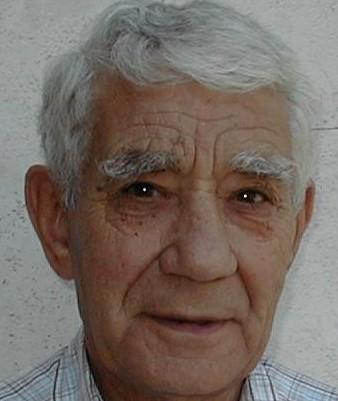Daniel Comboni
Misjonarze Kombonianie
Obszar instytucjonalny
Inne linki
Newsletter
In Pace Christi
Cometti Luigi
Luigi Cometti was born on 31 May, 1928, at Desenzano, Brescia, a small village on Lake Garda. He joined the Combonis at Gozzano in August, 1948, took his first vows on 9 September, 1950, in Sunningdale, England. In September 1966, he was awarded an Artisan’s certificate by the “City & Guild of London Institute”, especially in woodwork. Already since 1949, his formators had said of him: “He quickly learns new trades and shows good sense in his work and in making himself busy”.
Six years later he took final vows at Ombaci, Uganda, where he spent twenty nine years (1953-1982) as a teacher and diocesan procurator.
“From 1972 to 1982 – writes Fr. Torquato Paolucci – I had the privilege of knowing him and to have him as a friend. Gigi spoke little but had a great heart. He simply wanted to help the confreres and the people to live in peace. Ombaci, for those of us who were living at other missions, was like Bethany for Jesus and Gigi was our Martha. From time to time we would go there for a few days’ rest, or to attend meetings, spiritual exercises or for some celebration together and Gigi made us feel at home and always prepared a warm welcome. Despite economic difficulties, he made sure nothing was lacking. In the evenings there was always some nice cool beer and much merriment. He had a good poultry shed with turkeys, geese, hens, rabbits, etc. He also kept some cows and there was always fresh milk. He was a great worker. He would often spend the evening working in his office doing the accounts but he was always to be found very early in church in the morning. For his workers and their families, Gigi was their ‘security’. He knew when to intervene at the right time to resolve problems arising or helping a young boy or girl attend school. The story of his goodness is endless and he was well known in the city of Arua for his kindness. How many people falsely accused were saved by Gigi! Many people were very sad when he left Uganda. Gigi gave people hope”.
Fr. Antonio Solcia remembers that “if, during the sixties and eighties Ombaci was well known, this was due in great part and in all its aspects to the work of Bro. Luigi. In those years there were several expatriates in the school and in the city and they all willingly came to Ombaci, to such an extent that the occasional Protestant who also attended, was later rebuked by his bishop. Some of them (including Dr. Spitt) became Catholics. Bro. Luigi had a great heart, open and ready to help everyone. This generosity of his exposed him to financial and physical danger as happened in 1979 and 1980, during the rebellion against Amin, when he organised protection for some 10,000 people who took refuge at the mission. He sent the Fathers to the Congo, volunteering to stay alone in Ombaci. He was sensitive to the feelings of the sick and the poor … Since there was no dispensary at Ombaci, he offered to open it himself, looking after the sick when he had the time. He was a great worker and threw himself into what he was doing, day and night, doing far more than could be expected of him. At the end of each month he passed the night updating the accounts of the communities. He was a man of many talents in many fields. He could have made himself rich in the world of finance as a trader. Though he administered huge sums on behalf of the college and the missions, he never wasted anything. When he went to Kampala, he never went out to dinner at a restaurant or to drink beer. He used to say: ‘The money I spend belongs to others’. When the diocesan procure was not functioning, he offered to open a branch at Ombaci where one could find or order everything necessary. He was a good teacher. Ombaci Technical School attained a very high standard, better than many others. One year an inspector was sent by the Ministry of Education as students were suspected of copying during exams. Luigi showed him all the preparation papers and the inspector took them to Kampala as an example to be followed. He was also a good hunter but he only hunted to get some meat for the catechumens and the students”.
Bro. Luigi was transferred to Verona in 1983, to the administration office of the magazines. He was reluctant to enter a community “where they were all saints”. He was also at the service of the Mother House, until 1998.
In 1999, he left for Malawi-Zambia where he spent three years in Lilongwe at the provincial house and fourteen years at Lunzu (2002-2016) in the Comboni Technical College where he taught technical drawing, a difficult and demanding subject. While he was there, the school made remarkable progress in terms of maintenance and the addition of new buildings and workshops. Bro. Luigi would invite his friends from Italy to come and help with the maintenance of the school.
In 2017 he was transferred to the Brother Alfredo Fiorini Centre in Castel d’Azzano, where he passed away on 7 June, 2017. When he arrived in Castel D’Azzano, there was an unending stream of people coming to visit him, especially relatives and friends and confreres concerned about his state of health. In the hospital his only requests were to have a rosary beads at hand as well as a breviary marked at the correct page and a magnifying glass so that he could open his breviary and pray together with his community.
Da Mccj Bulletin n. 274 suppl. In Memoriam, gennaio 2018, p. 78-84.

